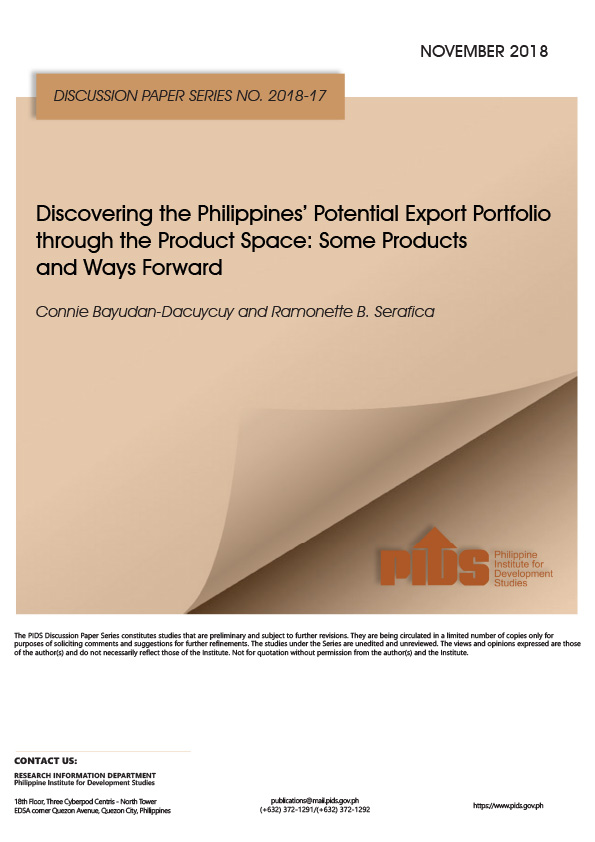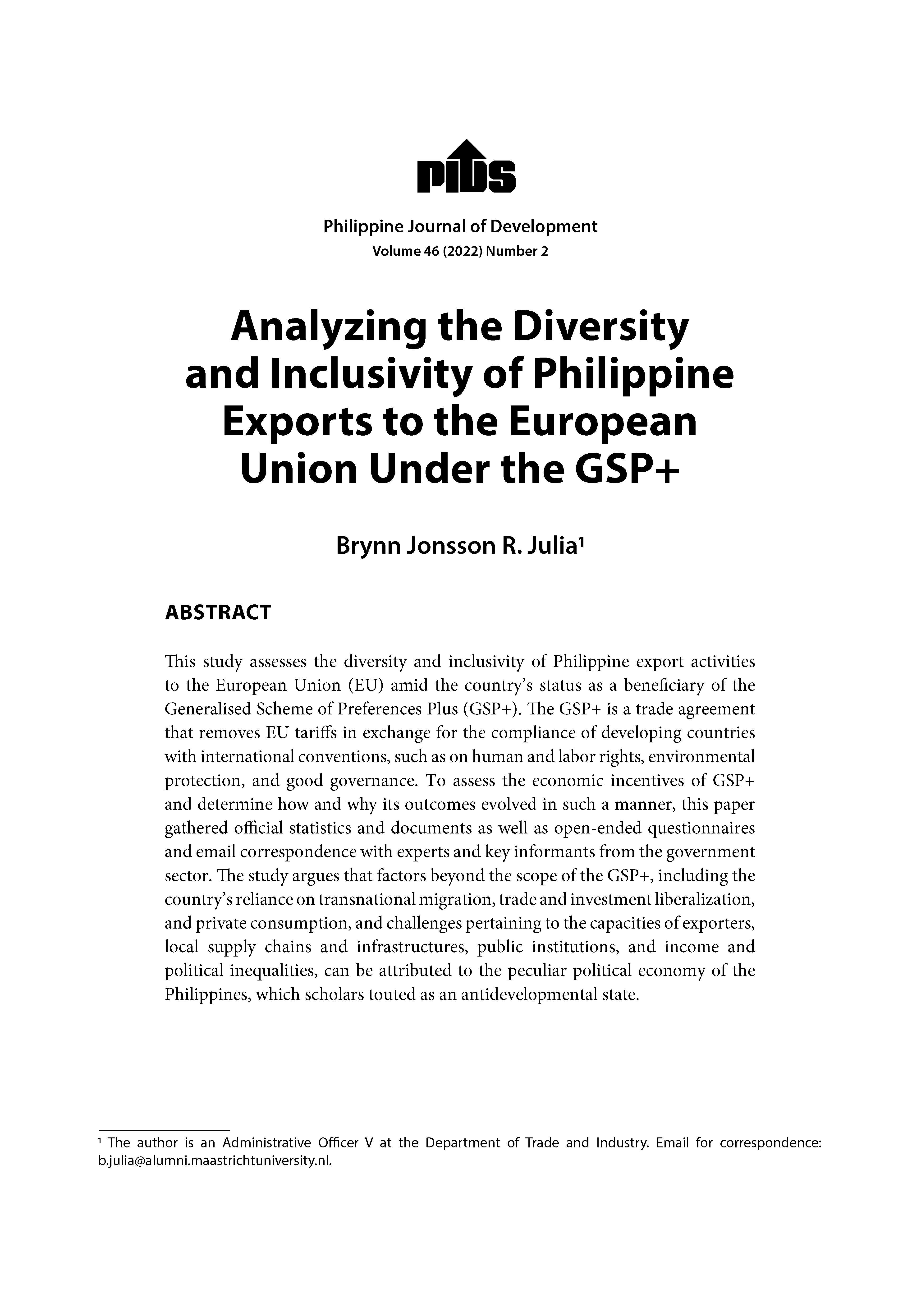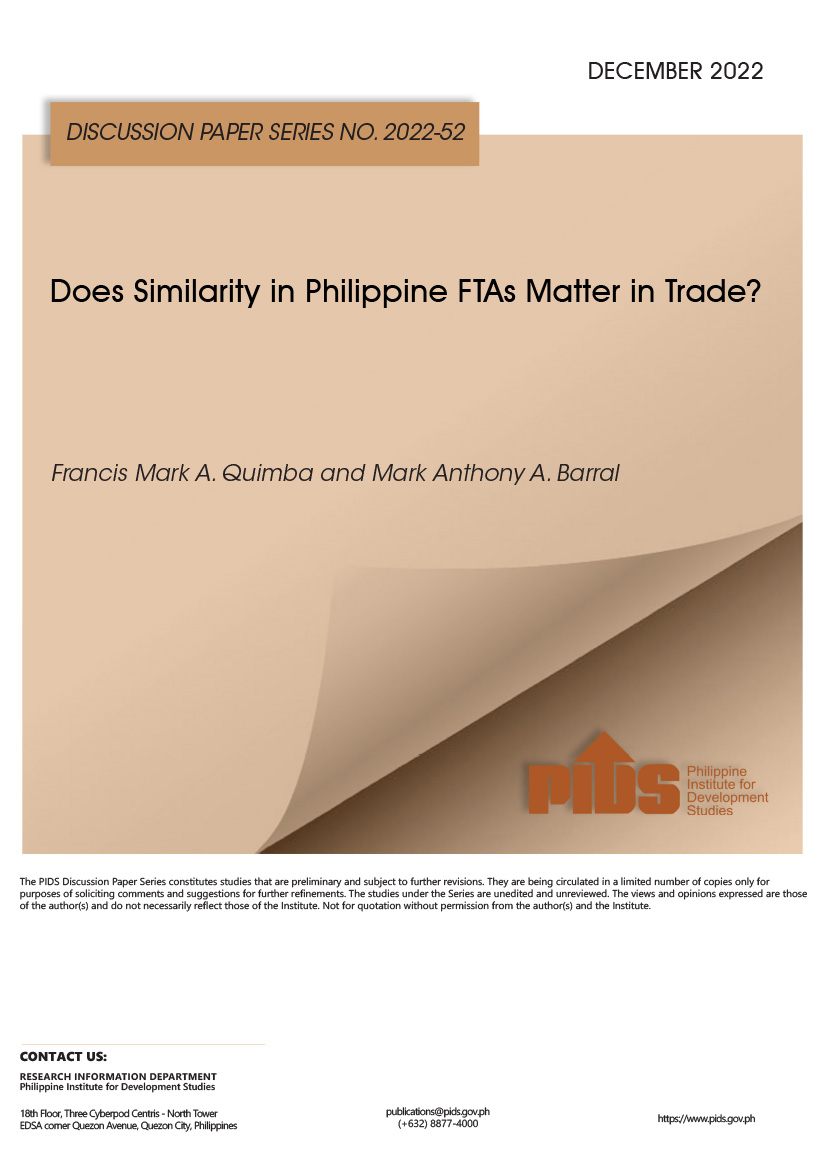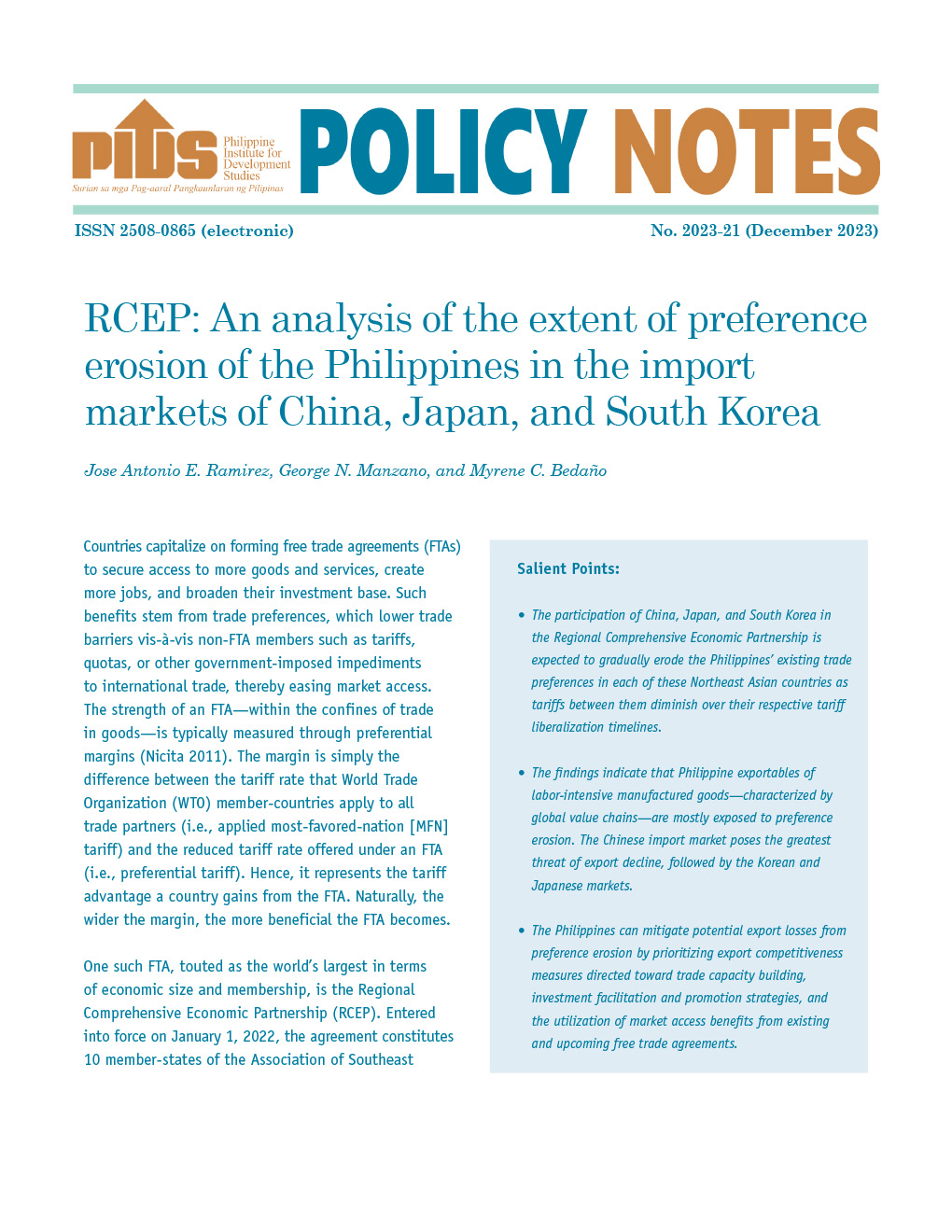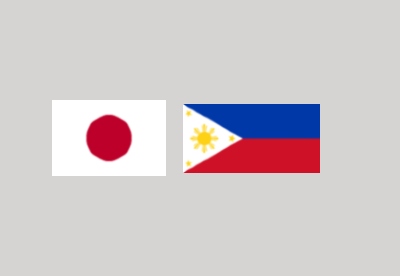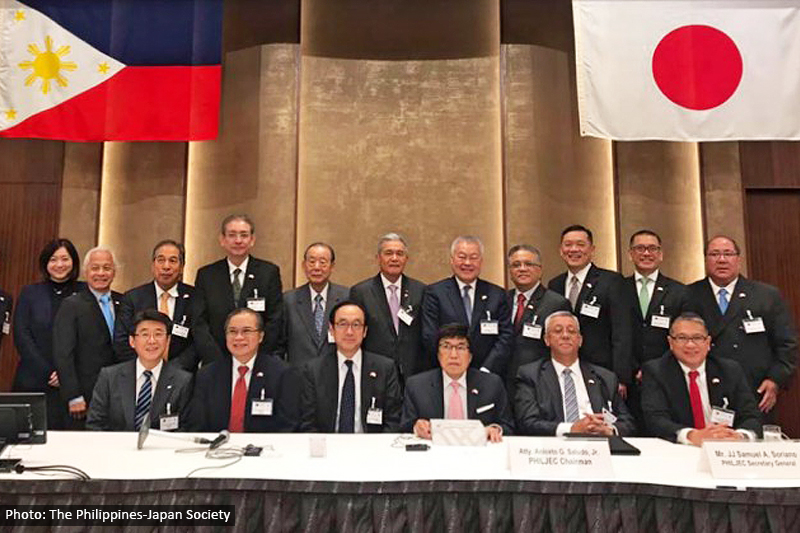While the Philippines has a long history of trade liberalization efforts and market-oriented reforms, the country has to yet to see a genuine structural transformation. Recently, there are efforts to transform the manufacturing industry into a globally competitive industry supported by backward and forward linkages to create decent jobs and promote sustainable and comprehensive growth. Given these, it is imperative for the country to chart its short-, medium-, and long-run diversification strategies. This research assesses the sophistication content of the country’s current export portfolio and identifies products that result in a more diversified and high value-added mix of export commodities. Using some metrics from the product space, the paper finds that the average sophistication of products included in the country's export basket has barely improved from 1995 to 2014—remained lower than the average sophistication content of exports in the world market. The paper also finds that some of the products in the country’s existing export basket has potential forward linkages to goods with relatively higher sophistication content, which in turn has potential linkages to even more sophisticated goods. However, the transformation does not happen overnight and requires well-thought-out policies, plans, and priorities. To this end, the paper advocates the implementation of measures outlined in the Philippine Export Development Plan. It also identifies other potential actions toward human capital development, innovations, and infrastructure programs.
Citations
This publication has been cited 1 time
- Ibañez, Jenina. 2019. Philippine exports’ value-added content stagnant since 1995 — PIDS. BusinessWorld.

